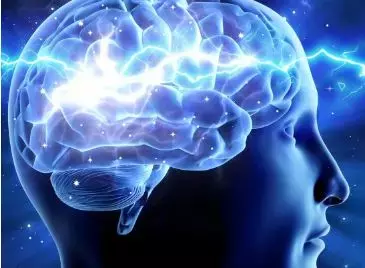- Home
- Medical news & Guidelines
- Anesthesiology
- Cardiology and CTVS
- Critical Care
- Dentistry
- Dermatology
- Diabetes and Endocrinology
- ENT
- Gastroenterology
- Medicine
- Nephrology
- Neurology
- Obstretics-Gynaecology
- Oncology
- Ophthalmology
- Orthopaedics
- Pediatrics-Neonatology
- Psychiatry
- Pulmonology
- Radiology
- Surgery
- Urology
- Laboratory Medicine
- Diet
- Nursing
- Paramedical
- Physiotherapy
- Health news
- Fact Check
- Bone Health Fact Check
- Brain Health Fact Check
- Cancer Related Fact Check
- Child Care Fact Check
- Dental and oral health fact check
- Diabetes and metabolic health fact check
- Diet and Nutrition Fact Check
- Eye and ENT Care Fact Check
- Fitness fact check
- Gut health fact check
- Heart health fact check
- Kidney health fact check
- Medical education fact check
- Men's health fact check
- Respiratory fact check
- Skin and hair care fact check
- Vaccine and Immunization fact check
- Women's health fact check
- AYUSH
- State News
- Andaman and Nicobar Islands
- Andhra Pradesh
- Arunachal Pradesh
- Assam
- Bihar
- Chandigarh
- Chattisgarh
- Dadra and Nagar Haveli
- Daman and Diu
- Delhi
- Goa
- Gujarat
- Haryana
- Himachal Pradesh
- Jammu & Kashmir
- Jharkhand
- Karnataka
- Kerala
- Ladakh
- Lakshadweep
- Madhya Pradesh
- Maharashtra
- Manipur
- Meghalaya
- Mizoram
- Nagaland
- Odisha
- Puducherry
- Punjab
- Rajasthan
- Sikkim
- Tamil Nadu
- Telangana
- Tripura
- Uttar Pradesh
- Uttrakhand
- West Bengal
- Medical Education
- Industry
Midazolam lowers recollection memory during light sedation in patients on anesthesia: Study

Painful stimulation during light sedation with midazolam, but not ketamine, can be accompanied by increased coherence in brain connectivity, even though details are less likely to be recollected as explicit memories, according to reports from a recent study published in Anesthesiology.The research team further elaborated that in healthy volunteers using an experimental memory paradigm using periodic pain under light sedation, recollection memory was reduced by midazolam compared with saline and ketamine.
Despite the well-known clinical effects of midazolam and ketamine, including sedation and memory impairment, the neural mechanisms of these distinct drugs in humans are incompletely understood. The authors hypothesized that both drugs would decrease recollection memory, task-related brain activity, and long-range connectivity between components of the brain systems for memory encoding, pain processing, and fear learning.
In this randomized within-subject crossover study of 26 healthy adults, the authors used behavioral measures and functional magnetic resonance imaging to study these two anesthetics, at sedative doses, in an experimental memory paradigm using periodic pain.
The primary outcome, recollection memory performance, was quantified with d′ (a difference of z scores between successful recognition versus false identifications). Secondary outcomes were familiarity memory performance, serial task response times, task-related brain responses, and underlying brain connectivity from 17 preselected anatomical seed regions. All measures were determined under saline and steady-state concentrations of the drugs.
Results highlighted the following facts.
- Recollection memory was reduced under midazolam (median [95% CI], d′ = 0.73 [0.43 to 1.02]) compared with saline (d′ = 1.78 [1.61 to 1.96]) and ketamine (d′ = 1.55 [1.12 to 1.97]; P < 0.0001).
- Task-related brain activity was detected under saline in areas involved in memory, pain, and fear, particularly the hippocampus, insula, and amygdala.
- Compared with saline, midazolam increased functional connectivity to 20 brain areas and decreased to 8, from seed regions in the precuneus, posterior cingulate, and left insula.
- Compared with saline, ketamine decreased connectivity to 17 brain areas and increased to 2, from 8 seed regions including the hippocampus, parahippocampus, amygdala, and anterior and primary somatosensory cortex.
"The paradigm-related brain activity differed between the two drugs: Whereas midazolam mostly increased, ketamine predominantly decreased functional connectivity from brain regions involved in memory encoding, pain processing, and threat response.These observations highlight how pharmacologically distinct general anesthetics may engage distinct neural dynamics to modulate cognitive experience under threat of pain."the team concluded.
For full article follow the link: https://doi.org/10.1097/ALN.0000000000003774
Source: Anesthesiology
Dr Satabdi Saha (BDS, MDS) is a practicing pediatric dentist with a keen interest in new medical researches and updates. She has completed her BDS from North Bengal Dental College ,Darjeeling. Then she went on to secure an ALL INDIA NEET PG rank and completed her MDS from the first dental college in the country – Dr R. Ahmed Dental College and Hospital. She is currently attached to The Marwari Relief Society Hospital as a consultant along with private practice of 2 years. She has published scientific papers in national and international journals. Her strong passion of sharing knowledge with the medical fraternity has motivated her to be a part of Medical Dialogues.
Dr Kamal Kant Kohli-MBBS, DTCD- a chest specialist with more than 30 years of practice and a flair for writing clinical articles, Dr Kamal Kant Kohli joined Medical Dialogues as a Chief Editor of Medical News. Besides writing articles, as an editor, he proofreads and verifies all the medical content published on Medical Dialogues including those coming from journals, studies,medical conferences,guidelines etc. Email: drkohli@medicaldialogues.in. Contact no. 011-43720751


